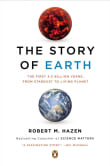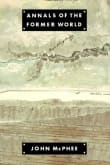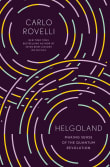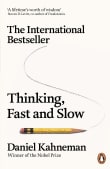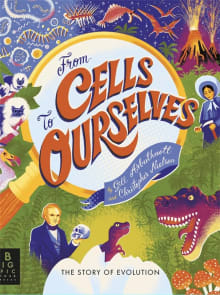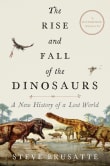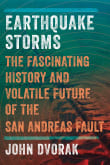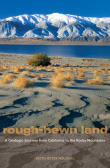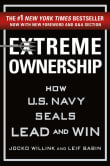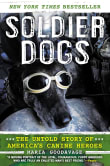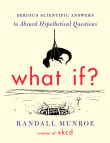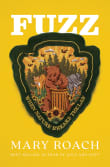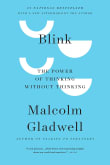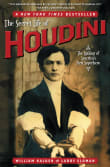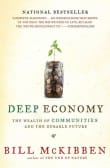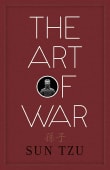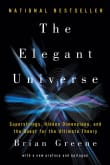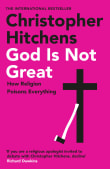A Short History of Nearly Everything
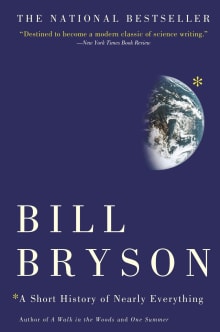
Book description
The ultimate eye-opening journey through time and space, A Short History of Nearly Everything is the biggest-selling popular science book of the 21st century and has sold over 2 million copies.
'Possibly the best scientific primer ever published.' Economist
'Truly impressive...It's hard to imagine a better rough guide to science.'…
Why read it?
10 authors picked A Short History of Nearly Everything as one of their favorite books. Why do they recommend it?

I find great pleasure in learning a little bit about a lot of things, and this book scratches that itch in a great way. Touring through big scientific concepts, Bryson delivers the potentially overwhelming (and boring) information in a fun way that made me understand space-time way more than any middle school physics class did.
It’s not a book that needs to be read in order or even be read in its entirety to enjoy, so it’s fun to have around to pick up a chapter here and there or read it straight through. The other day I went back…
From Iris' list on the mysteries of nature.

I’ve always loved Bill Bryson’s travel writing, and in his later foray into popular science he remains a funny and curious guide to everything from the origins of the universe, to the inner workings of planet Earth. The way he weaves together subjects as diverse (and challenging) as evolution by natural selection and quantum mechanics is an incredible achievement.
From Harry's list on the universe and our cosmic origins.

I was amazed at the breadth of topics covered by this popular book. I found it truly impressive and I learned a great deal from the engaging style of the author who is very well informed.
The work itself is wonderfully succinct but provided me with an in-depth look at the formation of the universe and how everything came to be as it is.
From John's list on history books for those who like quirky statistics and facts.
If you love A Short History of Nearly Everything...

In my opinion, this is the best book ever written. By anyone. Of all time.
Sure, that is a bold statement, but A Short History has everything I personally want in a book: thoughtfully presented information that explains things I previously did not know and, of course, humor. Importantly, Bill Bryson has Bill Shakespearean abilities at storytelling, without all that troublesome early modern English obscuring the prose.
Bryson’s preeminent work is singularly responsible for getting me into reading (and writing) as an adult, and even played a big role in me doing the science I do today.
From Greg's list on books to teach you something cool and make you laugh in the process.

A Short History of Nearly Everything lives on my bedside table. Each time I open it, I am struck anew by the extent of Bryson’s scientific knowledge and the time it must have taken him to compose this masterpiece.
With clear and flawless language, he brings us inside a cell or to the edge of the solar system as he conveys the miracles of planet Earth. For instance, so widely are atoms recycled that a billion of our own once belonged to Shakespeare.

This is a very good attempt to help inform people of where we came from and how we got here. I love the broad perspective and easy flow of the story. Bryson attacks the big questions and stimulates our thinking. This is a great starting point for exploring the issues in the tensions between science and religion.
From James' list on science vs. religion.
If you love Bill Bryson...

A Short History of Nearly Everything is great for two reasons. The first of which is just getting a better understanding of how science has developed our thought process and beliefs over the past several hundred years and how it impacts and changes our views based on new findings.
The second, and more impactful, lesson to be taken from this book is how it approaches scientific philosophies. A Short History of Nearly Everything takes the most complex scientific theories and facts and breaks them down to the most simplest concept.
Thus proving, in order to get everyone to have confidence…
From Cassmer's list on developing an entrepreneurial instinct.

The spine on my copy of A Short History of Nearly Everything is well-worn from all of the times it’s been opened. Bill Bryson strikes a conversational tone with the reader about the history of the earth, taking them on an entertaining tour through scientific discovery, adding a big helping of humor and human-interest stories along the way. This is my go-to for a relaxing read that teaches me something too!
From K.T.'s list on readers who love science, dogs, and crime fighting.

Bill Bryson, best known as a humorist, describes earth’s history from the beginning of the universe. It’s a hefty 500-pages but can be swallowed in small, entertaining doses. For instance, he notes that “human beings would split the atom and invent television, nylon, and instant coffee before they could figure out the age of their own planet.”
From Sam's list on earth history.
If you love A Short History of Nearly Everything...

Bryson’s classic is so good, I have re-read it several times. This book sums up the history and major developments of practically ALL the sciences, geology included. Written with zest and humor, and the wide-eyed wonder of a passionately interested amateur, this book is mind-boggling in its scope. No scientist could have written it—we are all too specialized. Only an author of Bryson’s skill could have cast his net so broadly. The result is a triumph.
From Keith's list on geology that tell great stories.
Want books like A Short History of Nearly Everything?
Our community of 12,000+ authors has personally recommended 100 books like A Short History of Nearly Everything.



